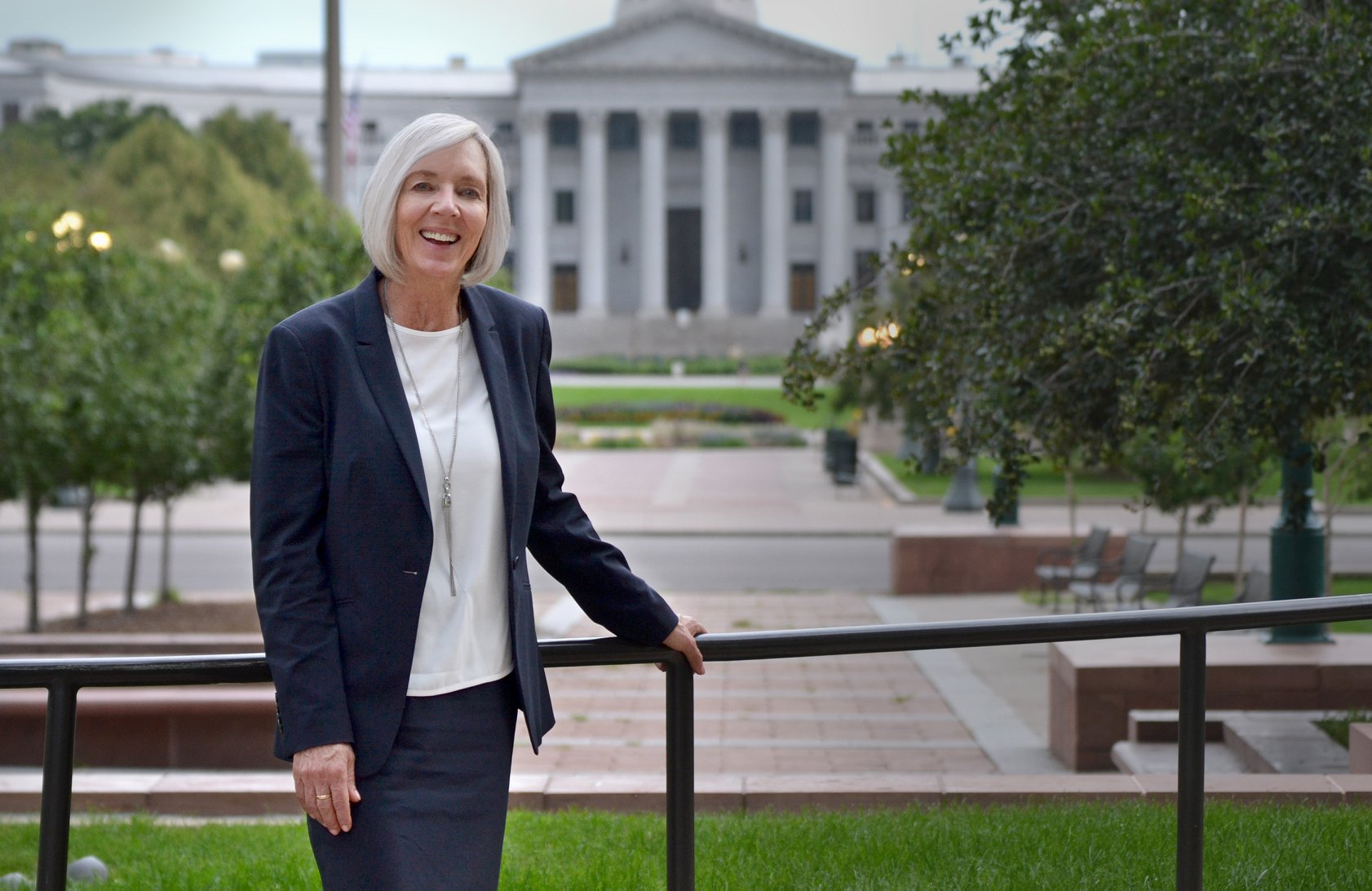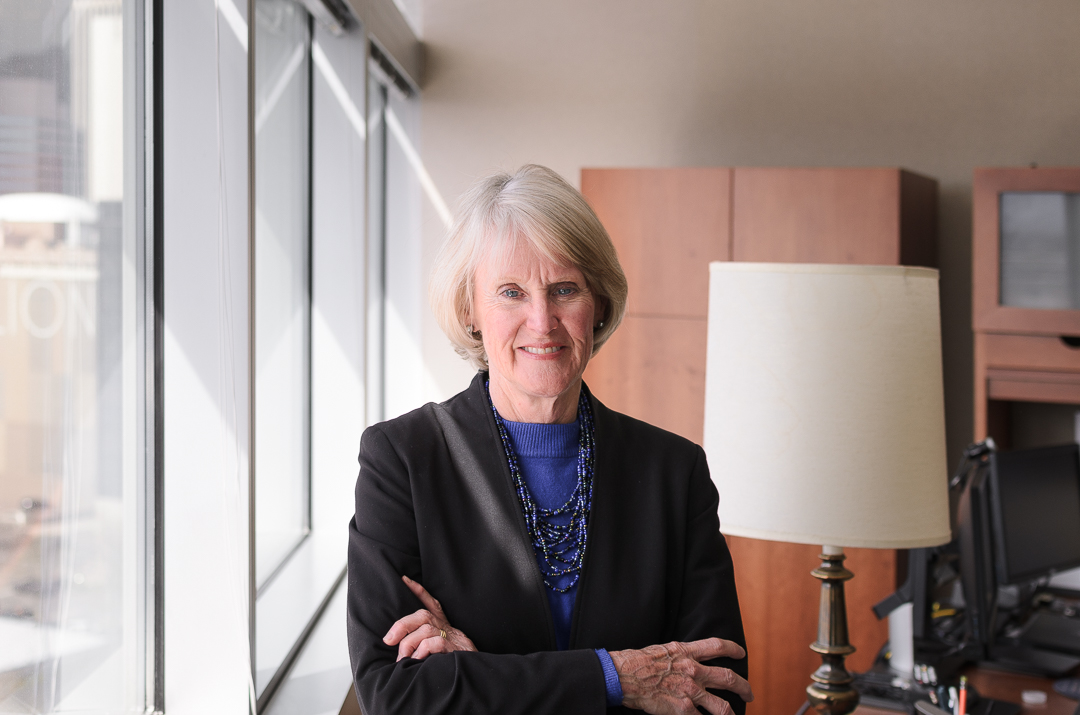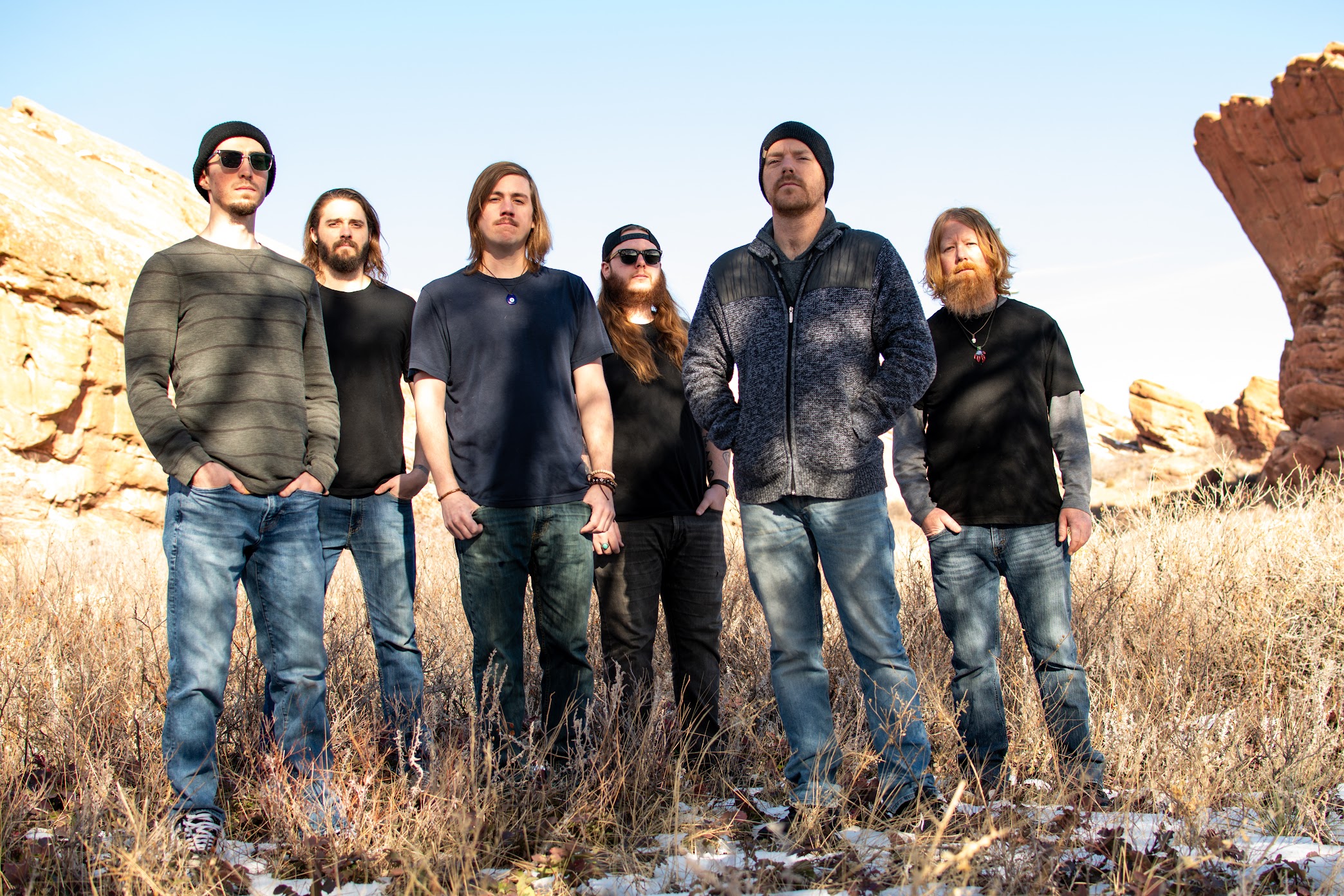In one week, voters in Colorado will need to make their first decisions for the 2020 elections by casting their ballot in the June primary. This year is not a slow year for voting, either. Aside from the Presidential election in November, voters in Colorado will also need to decide on a US Senator, US Representatives, state Senators and Representatives, local and state judges, Board of Education members, CU Regent and a small list of ballot initiatives.
Many voters ignore the importance of primaries but then complain about their choices come November. As of December 2019, 40% of Colorado voters are unaffiliated to a single party but are still allowed to participate in the primaries, leaving a lot of guessing about which candidates are truly ahead in the polls. If you receive both a Republican and Democratic ballot, you are only allowed to choose one ballot and vote within those party lines for the primary.
Read on to learn more about each candidate on a Denver-based voter’s ballot. For information about the top primary contests in the rest of Colorado, go here. For a list of every candidate running for election in 2020 in Colorado, go here. And if you don’t have a mail-in ballot, make sure to head to a poll station on June 30 to cast your votes.
US Senate
Everyone in Colorado will vote on the same candidates for this seat and everyone in the country will be watching. Ballotpedia lists this as one of 17 “battleground races” in the 2020 election cycle for US Senate since there is a lot of momentum for a Democratic candidate to take the Republican-controlled seat. But the incumbent, Cory Gardner, will not leave without a fight. In recent weeks, the race has lived up to the battleground title, although not as much Republican versus Democrat as we might expect. Instead, the two Democratic candidates have sparred on a few separate occasions, leading to unrest within the party.
Cory Gardner (R): Incumbent Senator Gardner does not have the approval ratings he needs to keep his seat. Since narrowly beating Senator Mark Udall in 2014, Gardner has proven two things — he did and will continue to support Trump for President and yet he is willing to act in bipartisan ways at times. In 2020, Gardner was ranked as the third most bipartisan Senator by The Lugar Center in 2019. However, Gardner has often been called out as contradictory, especially when he has changed views or adopted more stringent beliefs to align himself with the Trump campaign — as with his views on immigration reform. Another example is when Gardner signed a bipartisan letter in 2019 requesting permanent funding for the Land and Water Conservation Act and introduced the Great American Outdoors Act, and yet also historically supported the Keystone Pipeline, is pro-fracking and has introduced a bill to lessen the frequency of reports from the EPA about solid waste regulations. Gardner’s biggest battles have mostly occurred in the Energy and Foreign Policy sectors, from his championing of the “all-of-the-above” energy strategy to promote renewables alongside fossil fuels to his disagreement with Trump over North Korea (he thinks Trump should be harsher). But the battles he’s fought against some of his constituents in Colorado include his hard-line stance against abortion, his acceptance of gun regulations as is and his vote in favor of allocating billions of federal funds to pay for a US-Mexico border wall. He tries to pitch himself as the moderate choice in this race, but it’s hard to call him moderate when so many of the issues he stands behind are deeply conservative.
TL;DR (Too Long; Didn’t Read): Gardner focuses heavily on issues relating to agriculture and water, energy and the environment, foreign policy and national security. He supported Trump in 2016 and says he will support him again in 2020. Some of the controversies of his term include abortion regulations, lack of gun control regulations, immigration reform flip-flopping and supporting the US-Mexico border wall.
Andrew Romanoff (D): Most recently the CEO of Mental Health Colorado, Romanoff has plenty of experience in politics and governance, with eight years as a member of the Colorado House of Representatives (2000 – 2008) where he won three elections in a row. But he also has a bad track record of losing elections, with a loss in 2010 to Senator Michael Bennet (D) for the US Senate seat, and another loss in 2014 to Republican incumbent Mike Coffman in a US House of Representatives race. Put simply, that is one of the biggest concerns about Romanoff’s campaign for Democrats and supporters. As far as where Romanoff stands on the issues, his number one concern is the climate crisis. On his website, the first statements about why he’s running begin, “A catastrophic rise in greenhouse gases…” His “green” goals are in support of the Green New Deal. He wants to reach net-zero greenhouse gas emissions by 2040, prohibit new fossil fuel extraction on public lands and offshore, ban all fracking, end tax giveaways to fossil fuel companies, strengthen environmental protections and enforcement and accelerate the creation of a clean-energy infrastructure. Romanoff falls into party lines with most other issues — reproductive rights, bans on assault-rifles, healthcare for all — and pushes other things farther than his Democratic rival. For instance, Romanoff supports the elimination of the Electoral College (a system that allows the President to win even if the popular vote is not in their favor) whereas former Colorado Governor John Hickenlooper has stated that the “Founding Fathers got things pretty right.” Where Hickenlooper asks for the decriminalization of cannabis nationally, Romanoff calls for full national legalization. Romanoff also disagrees with Hickenlooper about police accountability, stating that “reform is not enough” and asking for the demilitarization of police as well as a list of other demands.
TL;DR: Romanoff doesn’t have the best record at winning elections, but has experience in politics as well as in business. He is hyper-focused on the climate crisis, healthcare for all and a better public education system. He believes in the demilitarization of police, national legalization of cannabis and the elimination of the Electoral College. Opponents don’t like that Romanoff attacked Hickenlooper and worry he won’t have the moderate approach (or name recognition) necessary to win over conservative and unaffiliated voters.
John Hickenlooper (D): For most people in Denver, there is no need to introduce Hickenlooper. He served as Mayor of Denver from 2003 to 2011 and then as Governor of Colorado from 2011 to 2019. Before that, he was one of the founders of Wynkoop Brewery (Denver’s first “brewpub”) and before that a geologist. In 2019, Hickenlooper found the national spotlight as a Democratic candidate for the 2020 presidential race, although he dropped out before any primaries were held. He often speaks about his success as Governor as proof that he will make a good senator, using the examples of Colorado’s booming economy at that time and the implementation of mail-in ballots. Often, Hickenlooper’s stances boil down to a small business owner’s approach — he likes healthy competition in the market (whether that’s for health care or higher education) and wants to be assured that big corporations or the government aren’t going to take over. This explains his stance on health care — one of the points where he disagrees with Romanoff — where he believes there should be a public option to lower costs for some individuals but not Medicare for All. It also explains Hickenlooper’s disapproval of the Green New Deal, since he doesn’t like government overreach and thinks it will be too difficult to implement. Even though he disagrees with fellow Democrats about the Green New Deal, Hickenlooper says he is still loyal to addressing environmental issues and, again, reaches into his past to explain how he’ll succeed on a national level. However, his stance on fracking and some stunts he’s pulled like drinking a glass of Halliburton fracking water have led to him getting the nickname “Frackenlooper.” Therefore some question if he is promising climate action just to fit into the Democratic establishment. His small business owner’s outlook does not explain, however, his recent mistakes that include an ethics violation scandal involving limos and private jets, an inappropriate comment comparing schedulers to slave masters with whips and his opposition to the national legalization of cannabis.
TL;DR: Hickenlooper has had some major successes in both his posts in Colorado. Although at first, he was a shoo-in for this US Senate seat, some recent mistakes have cost him in the polls. Hickenlooper operates with a small business owner’s mindset — avoiding big government regulations and interventions while supporting innovation and equity for the sake of healthy competition. He supports climate crisis management but not the Green New Deal and he has a prior track record supporting fracking. He supports a public option for health care but not Medicare for All. He often looks back at his accomplishments as a politician in Colorado for proof that he will be successful in the senate.
*Raymon Doane and Gaylon Kent will be on the general election ballot in November as Libertarians but are not included in primary ballots.
Other resources:
This article in The Colorado Sun about Cory Gardner’s allegiance to Trump
More information about Romanoff and Hickenlooper from CPR
The differences between Romanoff and Hickenlooper from The Colorado Sun
US House of Representatives
For voters in Denver and in some parts of Arapahoe and Jefferson counties, you’ll be voting for the District 1 Representative seat.
Diana Degette (D): Incumbent Degette has been in politics since the early ’90s, when she first served as the Colorado State Representative for District 6. After that position, she became the US Representative for the 1st Congressional District (in 1997) and served as the Chief Deputy Whip from 2005 to 2019. Degette has been a strong supporter of pro-choice movements receiving a 100% rating from Planned Parenthood after she guaranteed Colorado women access to abortion clinics through a bill that was found constitutional in 2000. She has supported same-sex marriage, embryonic stem cell research and gun control. Degette’s winning streak for this seat stretches back to 1996.
Shane Bolling (R): Bolling is a first-time politician looking to make an impact in a district that has been represented by the same politician for decades. However, there is no information available yet to explain Bolling’s stances about particular issues. Bolling did not respond to our request for comment.
Other resources:
Find your US Representative here
Ballotpedia’s informational page about all candidates in this race
State Board of Education

Three of the seven seats on the state board of education are up for grabs this year, in Districts 1, 3 and 7. Denver is in District 1 and Democratic voters will have to choose between two candidates while Republicans only have one choice. In November, a Libertarian will join the Democratic and Republican candidates on the ballot. The state board of education is a governing board that approves the Department of Education budget, makes rules, regulations and policies for preschool through adult education programs, distributes funds and many more important regulatory actions that affect the Colorado Department of Education and public schooling.
Lisa Escárcega (D): Escárcega calls on her childhood experiencing poverty in Detroit’s public school system as a frame of reference for her candidacy. She says that she was lucky to have teachers that helped her succeed at becoming the first in her family to receive a four-year degree. Which she then followed up with a masters and doctorate. Escárcega has nearly four decades of experience in education, first working as a school psychologist and ending her career working in policy across districts in the state. As a member of the board of education, Escárcega wants to “bring a strong, informed and consistent K-12 voice back to the board” she said in an interview. She also speaks about what defines a “quality school” — opposing the practice of looking at “raw data” and misusing it rather than asking the community what it wants or needs.
Read Escárcega’s Q&A on Ballotpedia here.
Donna Morganstern (D): Morganstern has spent her life in education, working first at Douglas County Schools and teaching at Metro State and then working until her recent retirement for the Department of Education. She has “watched for years as our representatives and decision-makers have dismissed critical information” pointing out one situation where she reportedly discovered a noticeable trace of racism in teachers, presented the information to the board and never saw anything done about it. Morganstern focuses her campaign on equity in education and direct dollars to students, teachers and classroom resources.
Read Morganstern’s Q&A on Ballotpedia here.
Sydnnia Wulff (R): Wulff seems to be a bit of an enigma, with no contact information or website available to peruse. The only trace of policy from Wulff is on the Colorado GOP website. It reads, “We are living difficult times [sic] suffering a world pandemic, facing new challenges with a biased press and Obama’s legacy corruption, and facing new old enemies like China, whom [sic] will stop at nothing to destroy our nation and the free world. I believe President Trump is the only qualified candidate to continue leading our nation through the path of justice, liberty and truth. Therefore I am asking, if would you please give me your vote to continue supporting the only qualified candidate, President Donald Trump.”
*Alan Hayman will be on the general election ballot in November as a candidate for this election under the Libertarian Party but is not included on primary ballots.
Other resources:
Primary Preview: State Board of Education for Congressional District 1: Democratic
Meet the Candidates Who Want to Represent Denver on the State Board of Education
State Representatives
Districts 2, 4, 5, 6, 7, 8 and 9 will vote on a representative come this fall. But unless you’re in District 6, you won’t have much of a choice in this primary as the rest of the districts have only one Republican and one Democrat running against each other. For a complete list of who is running in each district, go here. For a breakdown of the candidates for District 6, keep reading.
District 6
Neighborhoods: Hilltop, Glendale, Cap Hill, East Colfax
Steven Woodrow (D): Incumbent Woodrow is a lawyer who says he has spent his career fighting for workers and families against “the nation’s most powerful interests.” As a father of students in the Denver Public School system, one of his main focuses is public education. He also has a record of supporting initiatives to help with the climate crisis, like his “ban-on-bans” which seeks to reverse Colorado’s law disallowing local governments from taking actions to ban items like single-use plastic bags.
Dan Himelspach (D): This 71-year old attorney and mediator emphasizes his 40 years of experience in District 6 as an involved citizen. His campaign focuses especially on cutting funding for private prisons and property tax exemptions for seniors.
Steven Paletz (D): Another lawyer, Paletz is only 32 and his top issue is mental health. “I’ll advocate for laws requiring mental health parity, treating mental health care as the same as physical health care,” Paletz said to The Colorado Sun when asked about his campaign.
William McAleb (R): There is no further information about McAleb currently available. He will win the Republican nomination from the primaries because he is the only Republican running in District 6.
Other resources:
Ballotpedia page of all Colorado House of Representative elections
District Attorney

Unfortunately for Denver voters who want a choice in this category, there is only one candidate to vote for in the primary — current District Attorney for the 2nd Judicial District Beth McCann. She is running unopposed in the primary. This position is an important one to keep your eye on in the future, as District Attorneys make all sorts of decisions that impact citizens.
Other resources:
Meet the Denver DA
Interactive Map of Colorado’s Judicial Districts
Informational article about the contentious 4th Judicial District Campaign
Q&A of 1st Judicial District DA primary candidates
*Editor’s Note: This article has been updated to reflect that Lisa Escárcega has spent nearly four decades working in education.





